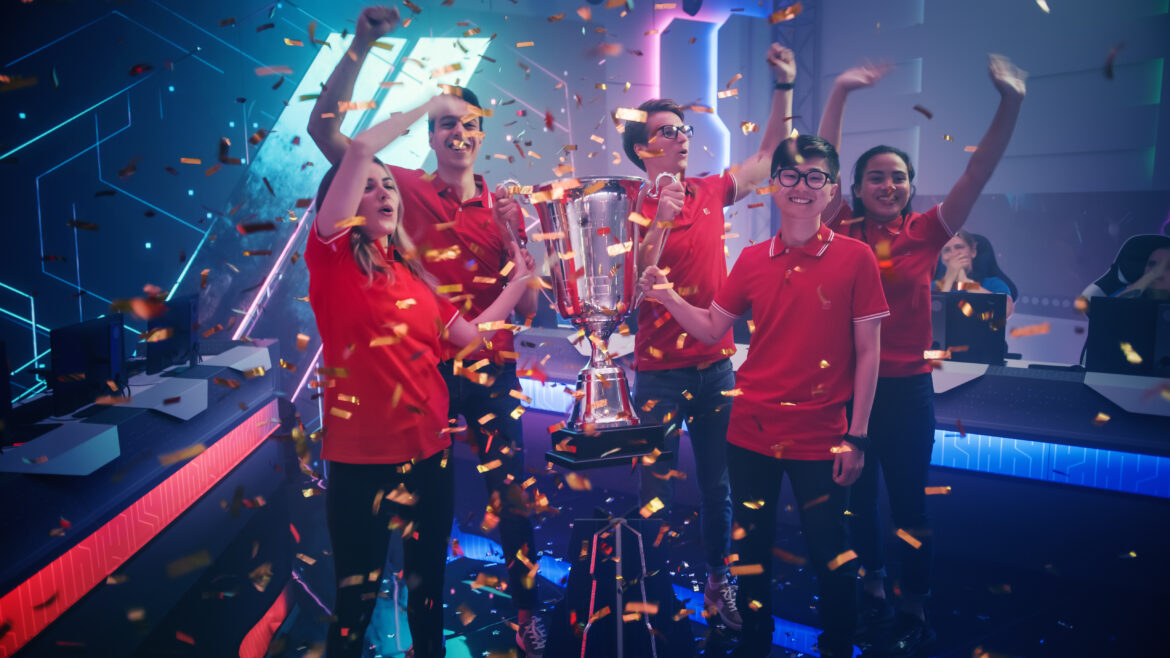In the world of multiplayer gaming, the adage “teamwork makes the dream work” holds especially true. Whether you’re navigating a complex raid in an MMORPG, strategizing in a battle royale, or coordinating an assault in a first-person shooter, effective communication is the key to success. In this blog, we’ll explore why communication is vital in multiplayer games and delve into strategies to enhance team coordination, leading to more enjoyable and victorious gaming experiences.
Understanding the significance of communication in multiplayer games
Effective communication in multiplayer games is essential for several reasons:

1. Strategic Planning: Real-time strategy and planning are often necessary for overcoming challenges and achieving objectives. Clear communication helps in formulating strategies quickly and efficiently.
2. Coordination and Synchronization: Many multiplayer games require precise timing and coordination. Whether it’s executing a synchronized attack or defending a position, communicating effectively ensures that everyone is on the same page.
3. Problem Solving: When things go wrong, teams that communicate well can adapt and find solutions more quickly. This flexibility can be the difference between a narrow defeat and a hard-fought victory.
4. Building Camaraderie: Good communication fosters a sense of teamwork and camaraderie, making the gaming experience more enjoyable and engaging for everyone involved.
Key Communication Strategies for Multiplayer Games:
1. Use Voice Chat Effectively
Voice chat is a powerful tool for real-time communication. Below are some suggestions for maximizing its utility:
– Clarity and Brevity: Keep your messages clear and to the point. Avoid long-winded explanations during critical moments of gameplay.
– Callouts and Alerts: Use specific callouts for locations, enemy sightings, and important events. This helps your team react swiftly and appropriately.
– Positive Reinforcement: Encourage and support your teammates. Positive communication can boost morale and performance.
2. Utilize In-Game Communication Tools
Most multiplayer games come with built-in communication tools, such as quick chat commands and ping systems. These tools are invaluable for conveying information quickly without the need for voice chat.
– Pings and Markers: Use pings to mark enemy locations, resources, or objectives. This visual information is easy for all team members to understand.
– Quick Chat Commands: Familiarize yourself with the game’s quick chat options. Phrases like “Need backup,” “Enemy spotted,” or “On my way” can be communicated instantly.
3. Establish Pre-Game Strategies
Before diving into a game, spend some time discussing strategies with your team. This helps set expectations and ensures everyone knows their role.
– Role Assignment: Allocate particular responsibilities to each team member according to their individual strengths and preferences. This clarity helps prevent confusion during gameplay.
– Tactical Planning: Discuss potential strategies and contingency plans. Having a game plan helps your team stay focused and organized.
4. Adapt and Evolve
Gaming environments are dynamic, and strategies may need to change on the fly. Effective teams are those that can adapt quickly and efficiently.
– Flexible Roles: Be willing to switch roles if necessary. Adaptability can be a significant advantage.
– Feedback Loops: After each game, discuss what worked and what didn’t. Constructive feedback helps improve future performance.
5. Manage Conflict Constructively
Inevitably, conflicts will arise in any team. How you manage these conflicts can significantly impact your team’s performance.
– Stay Calm: Maintain a calm demeanor, even in stressful situations. Anger and frustration can cloud judgment and lead to poor decisions.
– Constructive Criticism: Offer constructive criticism rather than negative comments. Focus on how the team can improve rather than placing blame.
6. Foster Team Spirit
Building a strong sense of team spirit enhances communication and cooperation.
– Encouragement and Support: Regularly encourage and support your teammates. A positive atmosphere promotes better communication and teamwork.
– Celebrate Successes: Celebrate victories and milestones, no matter how small. Recognizing achievements boosts team morale.
7. Know Your Tools
Familiarize yourself with the communication tools available in the game and any additional software your team uses.
– Discord and TeamSpeak: Many gamers use external communication tools like Discord or TeamSpeak. Make certain that all team members understand how to utilize these tools proficiently.
– Game-Specific Tools: Some games offer advanced communication features. Learn how to use these to enhance your team’s coordination.
8. Continuous Improvement

Enhancing communication is an ongoing skill development process. Regularly reflect on your team’s communication practices and look for ways to enhance them.
– Practice Regularly: Just as with any skill, practice enhances communication. Regular gaming sessions help build rapport and improve coordination.
– Learn from Others: Watch streams or videos of successful teams to learn how they communicate. Adopting best practices from others can be highly beneficial.
Conclusion
Effective communication is the cornerstone of successful teamwork in multiplayer games. By utilizing voice chat, in-game tools, pre-game strategies, and adaptive techniques, you can significantly enhance your team’s coordination and performance. Managing conflicts constructively, fostering team spirit, and continuously improving your communication practices will lead to a more enjoyable and successful gaming experience. Remember, in the world of multiplayer gaming, teamwork truly makes the dream work. So, gather your team, sharpen your communication skills, and conquer your next gaming challenge together!
